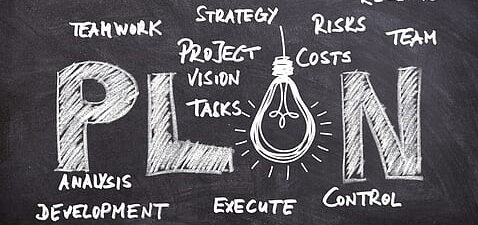What is Program Management
Program Management Essentials
Additional Reading
Project Management – What is Project Management?
Product Management – What is Product Management?
Best Practices of Product Management – 10 Best Practices of Product Management
Best Practices of Program Management – 15 Best Practices of Program Management
Difference between a Leader and a Manager – Key differences between a leader and a manager
Introduction
Program Management is the process of managing multiple projects, also known as a Program, to achieve a common goal. It involves coordinating resources, schedules, and budgets to ensure the successful completion of the program. Program Management is a comprehensive approach to managing multiple interdependent projects that share resources. It requires a deep understanding of project management principles and the ability to apply them across an entire program. The goal of program management is to ensure that all projects within the program are executed efficiently and effectively, meeting their respective objectives, and ultimately delivering value to the organization.
Program management requires a unique set of skills and tools that allow program managers to effectively coordinate and manage multiple projects at once. It involves coordinating various teams, resources, and stakeholders to ensure that each project is aligned with the overall objectives of the program. It is a complex and challenging undertaking that requires effective leadership, strong communication skills, and the ability to manage change. The program manager is responsible for overseeing the program and ensuring that all projects are aligned with the overall program objectives.
In this blog, we will explore what program management is, its benefits, and the program management processes.
What is Program Management?
Program management is the process of managing a group of related projects that are designed to achieve a specific organizational goal. A program is a set of related projects, which are managed together to achieve a specific outcome. Program management involves overseeing the program’s objectives, resources, stakeholders, risks, and budget to ensure the successful completion of the program. It involves the coordination of project teams, resources, and timelines to ensure that each project is completed on time, within budget, and meets the overall program objectives. It also involves coordinating, monitoring, and controlling several interdependent projects simultaneously to ensure that they align with the organization’s strategic goals.
Program management is often used in complex organizations or industries such as aerospace, defence, construction, and technology, where multiple projects need to be managed concurrently. The Program Manager is responsible for overseeing the execution of all projects within the program, as well as the coordination of resources, budgets, timelines, and risks.
The role of a program manager
Program Managers are responsible for ensuring that programs achieve their intended objectives, within the allocated time, budget, and scope. They are responsible for planning, executing, monitoring, and controlling the program’s activities to ensure that each project contributes to the program’s overall success. Program managers are also responsible for managing risks, resolving issues, and communicating progress to stakeholders.
Program Managers must be able to communicate effectively with all project stakeholders, identify and mitigate risks, and ensure that all projects stay on track and are aligned with the overall program objectives.
The Importance of Program Management
1. Efficient Resource Allocation
Program Management enables the efficient and effective use of resources, reducing duplication of effort and increasing productivity. Program Management ensures that resources are allocated efficiently across all projects. This helps to minimize waste and maximize productivity, which is essential for achieving the overall program goals. It also ensures that resources are allocated appropriately to achieve the program’s objectives.
Program management helps organizations to optimize resource utilization by coordinating resources across all projects within the program. This ensures that resources are used efficiently and effectively, which can lead to cost savings and improved performance.
2. Improved Coordination and Communication
Program Management provides a framework for effective coordination and communication among project teams, stakeholders, and Program Managers. This helps to ensure that everyone is working towards the same goal and that issues are identified and addressed promptly.
Effective program management ensures that all stakeholders are on the same page, with clear lines of communication established between project teams. This helps to identify and mitigate issues before they become problems, reducing the risk of project failure.
3. Better Risk Mitigation
Program Management involves identifying and mitigating risks across all projects. Program management provides a structured approach to risk management, ensuring that risks are identified, assessed, and mitigated throughout the program’s lifecycle. This helps to minimize the impact of any issues that arise, reducing the risk of delays and cost overruns.
Programs are often complex and involve significant risk. Program management helps organizations manage risks by identifying and mitigating potential risks across all projects within the program. This ensures that risks are managed proactively, reducing the likelihood of project failure. Effective program management ensures that risks are identified and managed proactively, reducing the likelihood of project delays or failures.
4. Greater Flexibility
Program Management allows for greater flexibility in responding to changes in the market or business environment. The ability to adapt quickly to changing circumstances is critical for success in today’s fast-paced business world.
5. Increased Efficiency and Effectiveness
Program Management allows organizations to streamline processes, reduce duplication of effort, and improve overall efficiency and effectiveness.
Effective program management ensures that projects are completed on time and within budget. This improves efficiency and productivity, resulting in cost savings and improved profitability.
6. Alignment with Organizational Goals and Strategic Objectives
Program Management helps organizations to ensure that all projects are aligned with the organization’s overall goals and objectives. This ensures that the organization is moving in the right direction and is achieving its strategic objectives.
Programs are designed to align with the organization’s strategic objectives. Effective program management ensures that the program remains aligned with these objectives throughout its lifecycle.
7. Coordination of Multiple Projects
Programs often involve multiple interdependent projects. Effective program management ensures that these projects are coordinated and integrated to achieve the program’s objectives.
8. Improved Stakeholder Engagement
Programs involve multiple stakeholders with different interests and expectations. Effective program management ensures that stakeholders are engaged and managed appropriately, improving overall stakeholder satisfaction.
Program management facilitates stakeholder engagement, ensuring that stakeholders are involved in decision-making and are kept informed of the program’s progress. This helps to build trust and support for the program.
9. Improved quality
Program Management helps organizations to ensure that all projects within the program meet the required quality standards. This ensures that the organization delivers high-quality products and services to its customers.
10. Enhanced program outcomes
Effective program management ensures that all projects within the program are delivered on time, within budget, and to the required quality standards. This results in better outcomes for the organization, its customers, and other stakeholders.
Effective Program management process
1. Initiation phase: This is the first phase of the program management process, and it involves defining the program’s objectives, scope, and stakeholders. In this phase, the program manager works with key stakeholders to identify the program’s goals, align them with the organization’s strategic objectives, and determine the program’s feasibility.
2. Planning phase: In this phase, the program manager creates a comprehensive plan that outlines how the program will be executed. This includes developing a program charter, identifying program components and their interdependencies, defining the program’s scope, and identifying the resources required to execute the program.
3. Execution phase: This is the phase where the program manager oversees the implementation of the program plan. This includes coordinating and managing the program team, monitoring project progress, managing risks and issues, and communicating progress to stakeholders.
4. Monitoring and control phase: In this phase, the program manager monitors project progress and compares it to the plan to identify any deviations. The program manager also takes corrective actions to address deviations and ensure that the program remains on track.
5. Closure phase: The closure phase involves winding up the program and ensuring that all program objectives have been achieved. This includes handing over any deliverables to the relevant stakeholders, documenting lessons learned, and evaluating the program’s success against its original objectives.
Conclusion
Program Management is essential for organizations to achieve their strategic objectives. Effective Program Management requires a unique set of skills and tools to plan, design, govern, monitor, control, report, and manage stakeholders. The Program Manager is responsible for ensuring that all projects within the program are executed efficiently and effectively, meeting their respective objectives, and ultimately delivering value to the organization. Implementing effective program management practices can improve efficiency, effectiveness, risk management, and stakeholder engagement, leading to better program outcomes.
In conclusion, effective Program Management is critical to the success of any organization that has multiple projects underway. It involves coordinating and overseeing the activities of all projects, ensuring that they are aligned with the overall program objectives. Program management helps to improve efficiency, reduce risk, and increase flexibility, resulting in cost savings and improved profitability. By following a structured Program Management process, organizations can achieve their intended objectives, delivering successful outcomes that meet their business needs.


